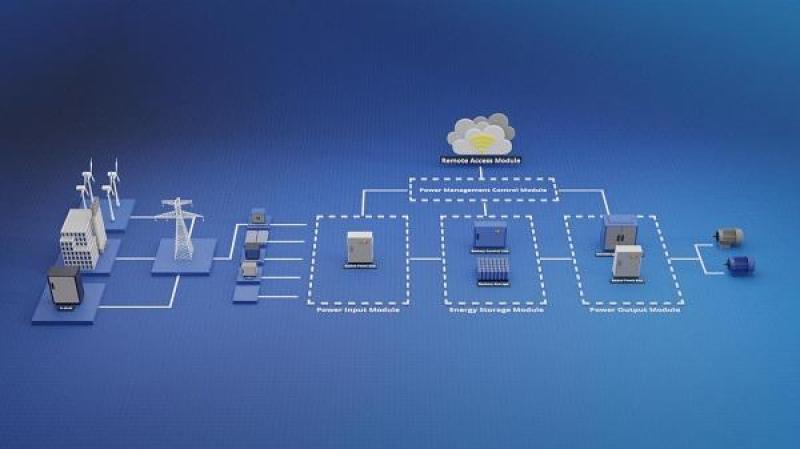Power management systems have become a crucial component in modern electrical and electronic applications, ensuring efficient energy utilization and reliability across various industries. With the rapid advancements in renewable energy integration, electric vehicles, and smart grids, power management systems are evolving to meet increasingly complex demands. These systems encompass hardware and software solutions designed to regulate, monitor, and optimize power generation, distribution, and consumption, thus playing a pivotal role in reducing energy wastage and improving operational efficiency.
As more organizations seek sustainable and cost-effective power solutions, the technology behind Power Management Systems continues to innovate. Innovations such as advanced battery management systems, real-time energy monitoring, and adaptive load balancing are redefining how power infrastructures are managed globally. This article explores the key functionalities, market trends, and strategic insights regarding power management systems that industry professionals and decision-makers need to understand.
Key Functionalities and Applications of Modern Power Management Systems
At the core of every power management system lies the capability to control voltage, current, and power flow dynamically. These functionalities allow systems to prevent overloads, optimize battery life, and maintain stable power supply in environments as diverse as data centers, smart homes, and industrial manufacturing plants. Power management systems are especially vital in renewable energy setups, such as solar and wind power installations, where energy output can be inconsistent and requires stabilization before utilization or storage.
Battery management systems (BMS) represent a specialized subset of power management. BMS technology ensures the longevity and safety of rechargeable batteries used in electric vehicles, portable electronics, and energy storage units. By continuously monitoring parameters such as temperature, charge state, and voltage, BMS prevents damage and improves battery efficiency. Similarly, power distribution units (PDUs) incorporate management features that facilitate load monitoring, power quality assessment, and remote control, especially in data center environments reliant on uninterrupted uptime.
Industrial applications benefit significantly from power management systems through enhanced energy efficiency and minimized downtime. Automated control systems perform real-time adjustments in power consumption based on workload demands, enabling industries to reduce operational costs and carbon footprint. Moreover, smart grid technologies utilize power management systems to balance electrical loads across urban and rural areas, streamlining energy distribution and integrating various energy sources seamlessly.
Emerging Trends Driving Growth in Power Management Systems
The power management system market is witnessing steady growth due to rising energy consumption, government regulations, and the adoption of electrification across sectors. Increasing investments in renewable energy infrastructures have stimulated demand for sophisticated power management solutions capable of integrating solar panels, wind turbines, and energy storage batteries with existing grids. Moreover, the surge in electric vehicle sales is pushing manufacturers and charging station providers to deploy advanced power management systems that ensure efficient energy transfer and grid stability.
Technological advancements such as IoT-enabled power management devices and AI-powered predictive analytics are reshaping market dynamics. Smart meters, sensors, and connected devices gather vast amounts of data that facilitate real-time load forecasting and fault detection—leading to proactive maintenance and better energy outcomes. Additionally, government initiatives promoting energy conservation and carbon reduction have accelerated the adoption of power management systems in both residential and commercial sectors.
The geographic landscape also influences market progression, with developed regions focusing on upgrading aging infrastructure while emerging economies emphasize expanding access to reliable electricity. This dual approach results in a diverse range of power management applications tailored to specific regional requirements. Strategic partnerships between utilities, technology vendors, and industrial players further catalyze innovation and deployment of advanced power management solutions on a broader scale.
Commercial Impact of Implementing Advanced Power Management Systems
Integrating sophisticated power management solutions directly influences commercial viability by lowering operational expenses and improving asset lifespan. Efficient power regulation reduces electricity bills, curtails grid dependency, and minimizes maintenance costs—offering significant financial benefits to businesses. In commercial buildings, smart energy management optimizes HVAC systems, lighting, and other electrical loads, contributing to substantial cost savings and improved tenant satisfaction.
The adoption of power management frameworks also supports compliance with increasingly stringent environmental regulations and energy efficiency standards. Organizations that implement these systems demonstrate corporate responsibility and enhance their brand reputation in environmentally conscious markets. Additionally, deploying power management technology encourages innovation in services and product offerings, enabling companies to differentiate themselves and capture new customer segments.
In sectors like telecommunications, healthcare, and manufacturing, where uninterrupted power supply is critical, power management solutions prevent downtime and data loss, protecting revenue streams and ensuring customer trust. As energy costs fluctuate and sustainability becomes a priority, embracing power management systems represents a savvy commercial move aligned with long-term business objectives.
Get This Report in Japanese Language - 電力管理システム
Get This Report in Korean Language - 전력 관리 시스템
Read More Articles Related to this Industry –
How ICT Companies Can Leverage Google Business Profile for Local SEO Success
How Predictive Maintenance is Revolutionizing Industrial IoT
About Author:
Priya Pandey is a dynamic and passionate editor with over three years of expertise in content editing and proofreading. Holding a bachelor's degree in biotechnology, Priya has a knack for making the content engaging. Her diverse portfolio includes editing documents across different industries, including food and beverages, information and technology, healthcare, chemical and materials, etc. Priya's meticulous attention to detail and commitment to excellence make her an invaluable asset in the world of content creation and refinement.
(LinkedIn- https://www.linkedin.com/in/priya-pandey-8417a8173/)
